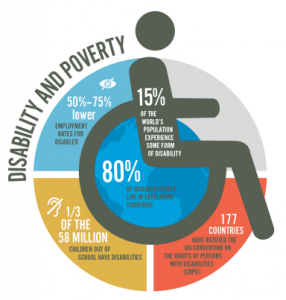 The Jurassic Park series of movies are all about unintended consequences. You can say the same thing about the Facebook advertising tools that were the subject of lawsuits against Meta. On June 21 the Department of Justice announced a settlement of claims against Meta related to Facebook’s advertising algorithms.¹ It is the second such settlement, the first having been obtained in a lawsuit filed by the National Fair Housing Alliance and other groups.² Both settlements are interesting reading for those who specialize in these subjects, but it is worth asking whether they will have any impact on other players in the real estate market. You don’t have to be a Meta, a Spectre, a T.H.R.U.S.H. or a Kaos(4) to for these settlements to have an effect on how you do business as a landlord, management company or real estate agent or broker. That’s because these settlements are aimed at new technologies, but rely on old fashioned legal principles that apply to all aspects of the housing market and to the unintended consequences of any kind of targeted marketing program.
The Jurassic Park series of movies are all about unintended consequences. You can say the same thing about the Facebook advertising tools that were the subject of lawsuits against Meta. On June 21 the Department of Justice announced a settlement of claims against Meta related to Facebook’s advertising algorithms.¹ It is the second such settlement, the first having been obtained in a lawsuit filed by the National Fair Housing Alliance and other groups.² Both settlements are interesting reading for those who specialize in these subjects, but it is worth asking whether they will have any impact on other players in the real estate market. You don’t have to be a Meta, a Spectre, a T.H.R.U.S.H. or a Kaos(4) to for these settlements to have an effect on how you do business as a landlord, management company or real estate agent or broker. That’s because these settlements are aimed at new technologies, but rely on old fashioned legal principles that apply to all aspects of the housing market and to the unintended consequences of any kind of targeted marketing program.
To understand why you need to understand the legal issue behind the DOJ lawsuit, the NFHA lawsuit and the original HUD investigation of Facebook. The Fair Housing Act prohibits various kinds of discrimination in housing transactions, including what is called advertising discrimination. The relevant section (28 U.S.C. §3604(c)) covers more than just advertising, but the easiest to understand application is ads that show a preference for one group over another. “Whites only” or “Singles only” would be the most extreme examples.
But what if the advertiser is clever enough not to say “whites only” but wants to make sure there are no black applicants for an apartment? Facebook’s targeted advertising programs were tailor made for making sure that unwanted applicants didn’t apply for an apartment or try to buy a house but not being explicit about it. You don’t need to say “whites only” if you only advertise to whites. It didn’t have to be this blatant or deliberate though. Advertisements that target those who live in particular neighborhoods, or those whose children attend certain private schools, or even those who shop in certain stores could achieve the same effect. It also doesn’t have to be deliberate discrimination. If an apartment complex is designed to appeal to young single professionals the landlord may not intend to exclude families, but ads targeting the ideal market will have that effect. The claims made by NFHA, HUD and DOJ all concerned the notion that by providing the tools that facilitate discrimination Facebook was itself engaged in discrimination.
There is clearly a tension between the hyper-targeted marketing offered by Facebook and the inclusive marketing that serves the goals of the Fair Housing Act. The DOJ settlement resolves that tension by limiting the extent to which Facebook can offer highly targeted marketing. Facebook will not, in theory, be able to offer tools that let advertisers intentionally or unintentionally exclude individuals based on race, religion, gender, disability and other illicit categories. That doesn’t mean however that the settlement has nothing to say to parts of the housing industry that don’t rely on AI to place their ads. Here are some of the implications for the industry and beyond.
- Other social media and online advertising platforms will be sued by DOJ or by the host of law firms that latch on to any new kind of lawsuit that promises lucrative returns. These platforms should already by thinking about how they can modify their targeted marketing programs to meet the standards to which Meta has agreed.
- Advertising costs for real estate transactions will go up. Social media advertising is priced in part on the number of impressions of the ad displayed to users. One of the advantages of targeted marketing is fewer impressions are needed to generate the desired level of response. With less targeting advertisers will have to buy more impressions to generate the same level of engagement.
- The landlords, managers and brokers who place ads could come under attack. Remember that Section 3604(c) is aimed primarily at those who place ads, not those who publish them. If it is illegal to offer tools that permit discriminatory advertising it is certainly illegal to use those tools for discriminatory purposes.
- DOJ and others may attack advertising that is targeted by the choice of where it is displayed. Advertising on domestic websites written in languages other than English is an effective way to target only one ethnic or linguistic group. Ads posted on community oriented websites in Chinese, Vietnamese or Spanish will most likely never be seen by individuals who don’t speak those languages. Similarly, advertisements on Fox News and its local affiliates will be seen almost exclusively by whites.³ A landlord looking only for white tenants doesn’t need a sophisticated screening tool like those offered by Facebook. All they need to do is advertise only on websites, radio stations and television stations that appeal only to whites.
Finally, there is an extension of the principles behind the Meta settlement that goes beyond the housing market. EEOC and DOJ have recently suggested that AI based systems for finding employees can be discriminatory(5). Almost all businesses open to the public are subject to the prohibitions against discrimination in the ADA and the Civil Rights Act of 1964. These businesses use targeted marketing to attract individuals they think they are likely to sell to, but that marketing necessarily excludes others, and the exclusion may be largely of individuals of a particular race, ethnicity or religion. As in the housing market, what seems like innocent targeting of groups to which no objection can be made might also turn out to eliminate all or most of the members of some group against whom discrimination is illegal.
But returning to the housing industry, high profile settlements like these can serve to deter unlawful conduct, but they also serve to encourage litigation. Housing professionals should evaluate their advertising and marketing policies to decide whether they might have an unintentional discriminatory effect and whether they can be justified on grounds unrelated to discrimination. Discrimination can be an unintended consequence of targeted advertising. Another perhaps unintended consequence will be more strike suits. Where DOJ leads others with less worthy motives are sure to follow.
++++++++++++++++++
³ See, Fox News’s Audience Almost Exclusively White as Network Faces Backlash Over Immigration Coverage
(4) Knowing just how humorless Meta and its owners are I’m sure they won’t get the joke. No, I don’t think Meta is a worldwide organization devoted to doing evil. Like the computers running the algorithms attacked by DOJ, Meta is just a very complicated machine for making money whose actions may have unintended consequences.


 Madeira was traditionally aged in barrels that crossed the equator twice, the heat and time fortifying and sweetening the wine. Like a cask of Madeira the sun will cross the equatorial plane of the earth in a few days, but you won’t have to wait for the next crossing in the fall for a quick hits blog. Here’s the news.
Madeira was traditionally aged in barrels that crossed the equator twice, the heat and time fortifying and sweetening the wine. Like a cask of Madeira the sun will cross the equatorial plane of the earth in a few days, but you won’t have to wait for the next crossing in the fall for a quick hits blog. Here’s the news.
 One of the more frequently quoted cases dealing with the relationship between the FHA and poverty is Salute v. Stratford Greens Garden Apartments, 136 F.3d 293, 301 (2d Cir. 1998). In Stratford the Second Circuit wrote that the FHA “addresses the accommodation of handicaps, not the alleviation of economic disadvantages that may be correlated with having handicaps.” The 11th Circuit’s decision in Schaw v. Habitat for Humanity, 938 F.3d 1259 (11th Cir. Sept. 18, 2019) takes up the question of just where one draws the line between disability discrimination and economic discrimination. Along the way it also clarifies who gets to decide what accommodation is required and just what “necessary” means.
One of the more frequently quoted cases dealing with the relationship between the FHA and poverty is Salute v. Stratford Greens Garden Apartments, 136 F.3d 293, 301 (2d Cir. 1998). In Stratford the Second Circuit wrote that the FHA “addresses the accommodation of handicaps, not the alleviation of economic disadvantages that may be correlated with having handicaps.” The 11th Circuit’s decision in Schaw v. Habitat for Humanity, 938 F.3d 1259 (11th Cir. Sept. 18, 2019) takes up the question of just where one draws the line between disability discrimination and economic discrimination. Along the way it also clarifies who gets to decide what accommodation is required and just what “necessary” means.  The official worst heat-wave ever is now over in both the U.S. and France, but Sirius is still rising just before dawn and nothing has cooled off in the courts. Here are the latest cases on ADA and FHA issues.
The official worst heat-wave ever is now over in both the U.S. and France, but Sirius is still rising just before dawn and nothing has cooled off in the courts. Here are the latest cases on ADA and FHA issues.
 This afternoon the Ninth Circuit overruled the district court decision in Robles v. Domino’s Pizza LLC. Robles has always been an outlier. It is one of only a couple of cases holding that the absence of DOJ regulations made it unfair to prosecute claims against website operators under the ADA. The Ninth Circuit disagreed, adding additional weight to the lower court decisions finding that the lack of regulations does not raise due process concerns and confirming that in website accessibility litigation justice is simply not available to small businesses.
This afternoon the Ninth Circuit overruled the district court decision in Robles v. Domino’s Pizza LLC. Robles has always been an outlier. It is one of only a couple of cases holding that the absence of DOJ regulations made it unfair to prosecute claims against website operators under the ADA. The Ninth Circuit disagreed, adding additional weight to the lower court decisions finding that the lack of regulations does not raise due process concerns and confirming that in website accessibility litigation justice is simply not available to small businesses.